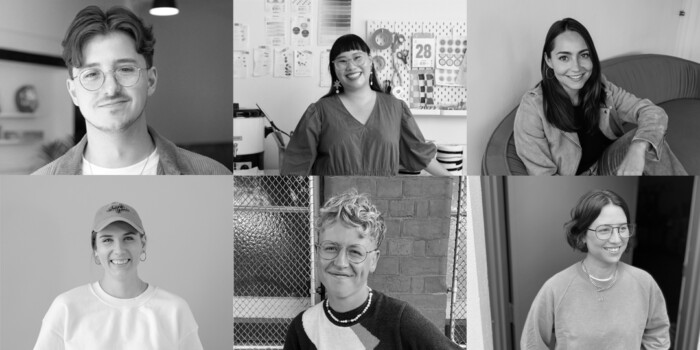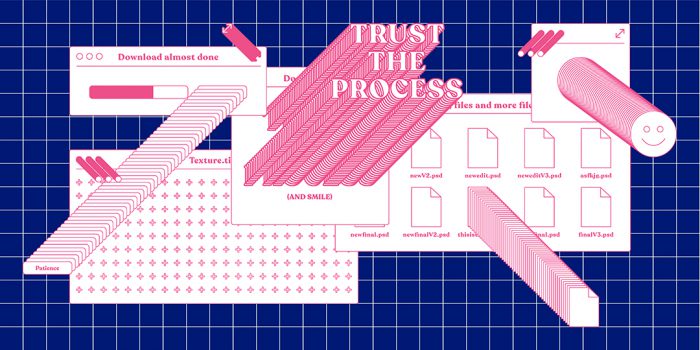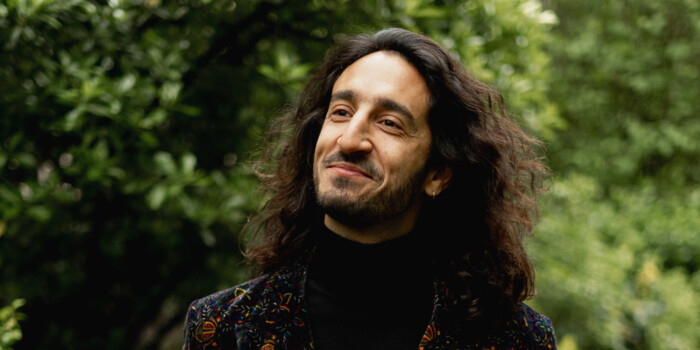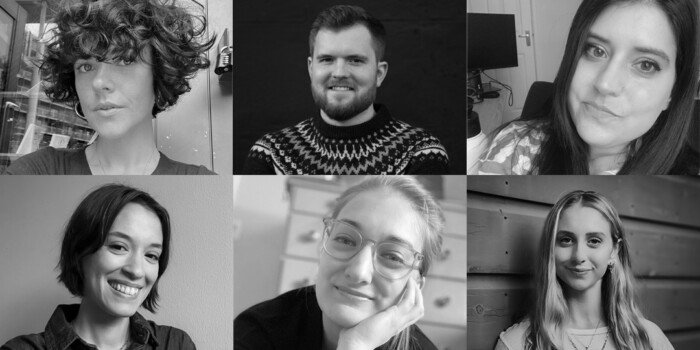Otherway Studio Tour from 3 Shillington Graduates
What do brand communications studio Otherway and Shillington have in common? James Douthwaite, Jeff Huynh and Elle Mourdjis, that’s what. After studying full-time at Shillington London they joined the team at Otherway where they now work as designers.
As part of Shillington Post 04—The Process Issue, we caught up with the graduates to see how they’re getting on in their new careers and find out a little more about Otherway. Read about Otherway’s philosophy of investing in ideas, why variety in the daily routine is the spice of life, and how the entrepreneurial nature of the company inspires ambition.
London has such an exhilarating design scene. How does it feel working right in the middle of Piccadilly Circus?
Elle: It’s quite surreal stepping out of the studio and seeing Piccadilly Circus! I do feel in the thick of it, and it gives me inspiration walking around and seeing the design and advertising work that is everywhere in London—especially clients we create work with.
Jeff: Just walking out from the station to Otherway HQ, you do get a real sense of buzz. It’s a very visually stimulating place. Depending on the project though, sometimes it’s better to get your head down, headphones on and forget all of the commotion at your doorstep.
Take us through a typical day working as a designer.
Elle: In the studio there are iterations of various projects hanging on the walls and music playing, each day is very varied and full of creative problem solving tasks. Currently I am designing for PizzaExpress, including bounce-backs, bill cards, and helping create the illustration on the menu front cover. It starts with the account manager relaying the most important job and planning your time. I sketch out a few ideas and try as quickly as possible to translate these onto the screen as rough scamps. These are critiqued by our designers and account managers, and are sent to the client. I’m usually jumping from project to project, depending on amends, and come back to bigger projects after client feedback.
James: Well, typical day … that’s kind of hard to describe. Answering questions like this makes me realise how much I enjoy the variety of my
job. There is no real structure. One day you could be doing a social media post for a juice brand, next day you could be working on an illustration for a client’s window display. That’s the beauty of this company, or many others that could be like it.
Variety is the spice of life, and day-to-day we succeed in producing so many amazing things that we have all worked on.
Jeff: If I’m honest, most days are completely different. Depending on the project, it can vary from designing websites for one of our start-up ventures, to conceptualising creative ideas for Fortnum & Mason or PizzaExpress. I am quite lucky that I get to work on such a broad spectrum of design at Otherway—it sure doesn’t get boring.
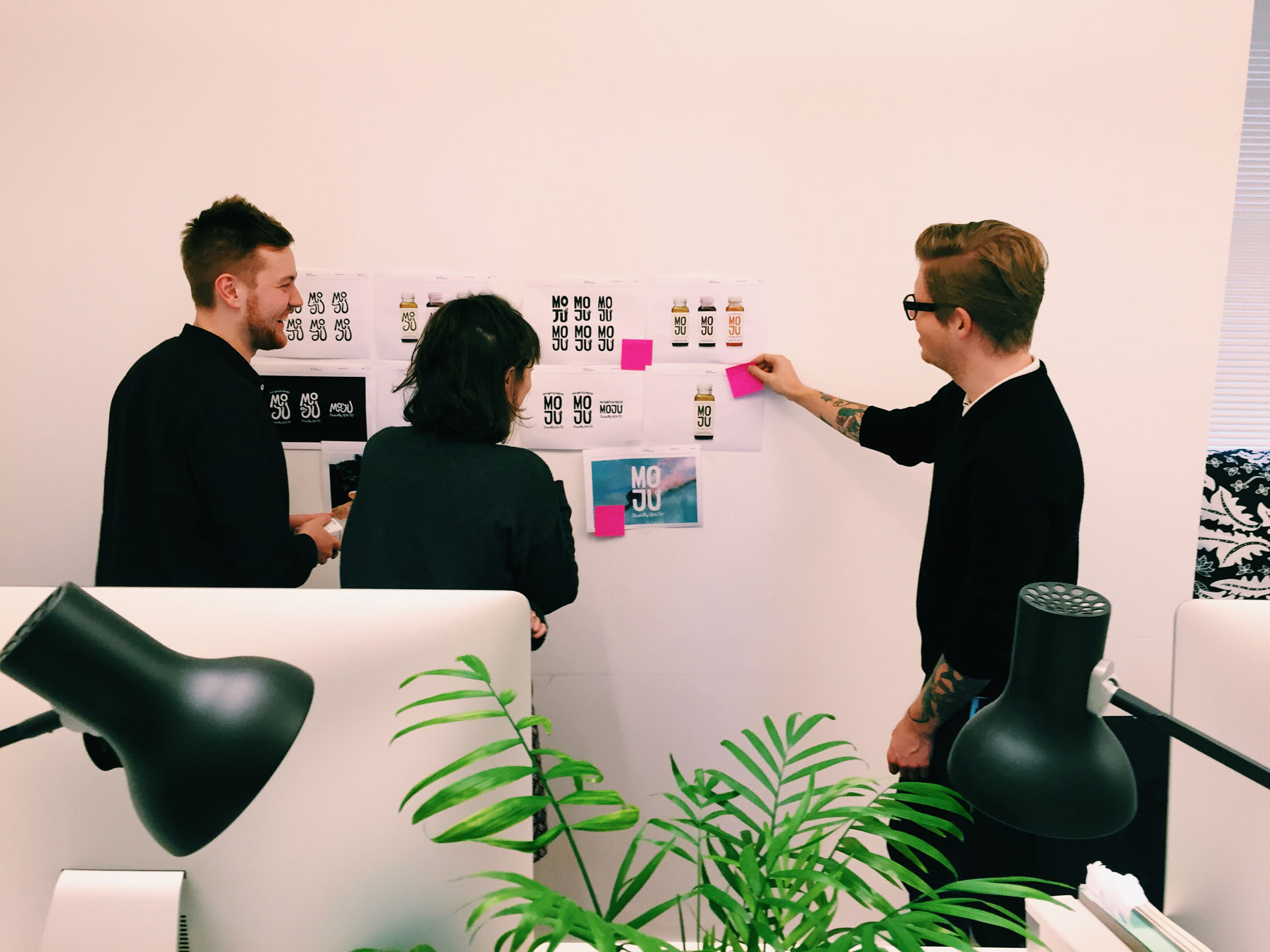
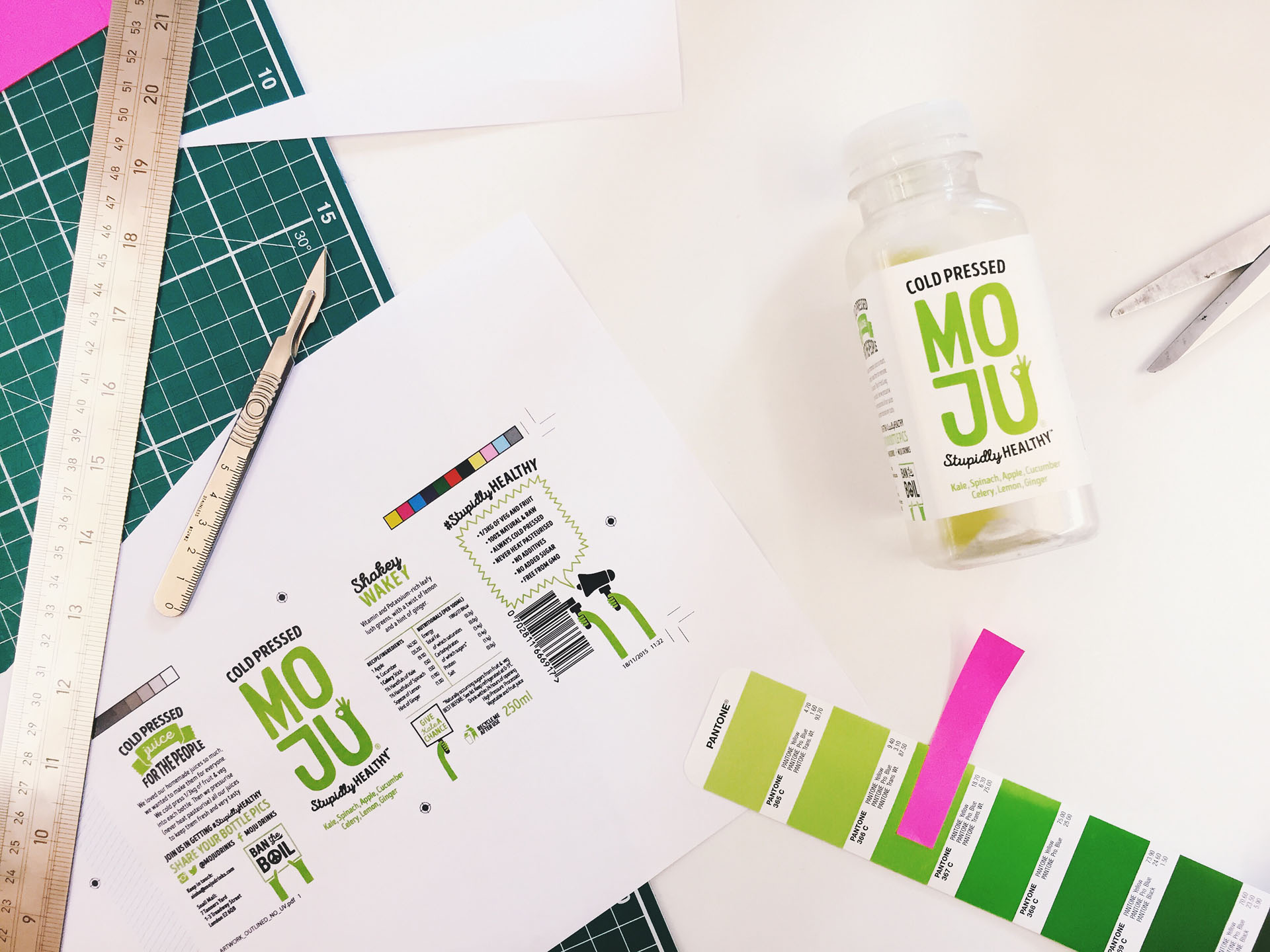
Otherway studio works for some huge name clients and also has its own ventures such as ‘Shore Projects’. Do you think it’s important for designers to work on their own personal work and has this side of Otherway inspired you to start any projects of your own?
Elle: I love Otherway’s philosophy of investing in ideas; their work ethic and drive definitely inspires me! I believe it is important to work on side projects if they enrich your understanding and love of design. A recent personal project was for Southwark Council, they approached me after seeing my illustration work at the Shillington Graduate Exhibition. Their campaign is about highlighting the early warning signs of domestic abuse which people often miss. They took to my idea of having romantic scenes with the abuser in red, and I have completed a range of three illustrations. It’s a great feeling to work on a project that will hopefully help people overcome difficulties in their lives. The campaign has launched on social media channels and will hopefully be on the London Underground!
James: Yes, Otherway create some really inspiring sidelines. Seeing the success of Shore Projects (the first thing I ever designed), it does give you a jolt of “I could do something this amazing”. If you ever do have the spare time, I’d say go for it! I believe it is important to make your dreams happen, whatever they are.
Jeff: Depends on how much free time you realistically have! Having a balance is healthy. When you’re not slammed with big deadlines, there’s nothing better than a side project to keep your creativity up. Otherway has sparked my enthusiasm to be entrepreneurial. Outside of work, I am taking online courses on how to develop websites and mobile apps, not only to gain a deeper understanding when designing but to also increase my potential for the future. Knowing both ends of the process can only be advantageous. The app market is booming and I’m excited to be part of it one day.
Do you think studying at Shillington helped you secure your position at a studio like Otherway?
Elle: Definitely. I looked back at the dates and it was six weeks between finishing Shillington and landing the first job, I didn’t realise it was so fast till now! This is the big difference between graduating from University and graduating from Shillington. After finishing my B.A. it was hard to land a job I really enjoyed.
When I was applying for work after Shillington, I got freelance work in the first couple of weeks and several offers for jobs within the first couple of months! Shillington provided me with essential technical skills and a portfolio to show my creativity and potential.
James: I really think that Shillington has helped me gain the appropriate skills to get to where I am, especially with the use of programs and general creative development.
Jeff: Definitely. Good briefs and an industry relevant portfolio was key. I learnt all the program skills I needed in order to work in such a fast-paced environment.
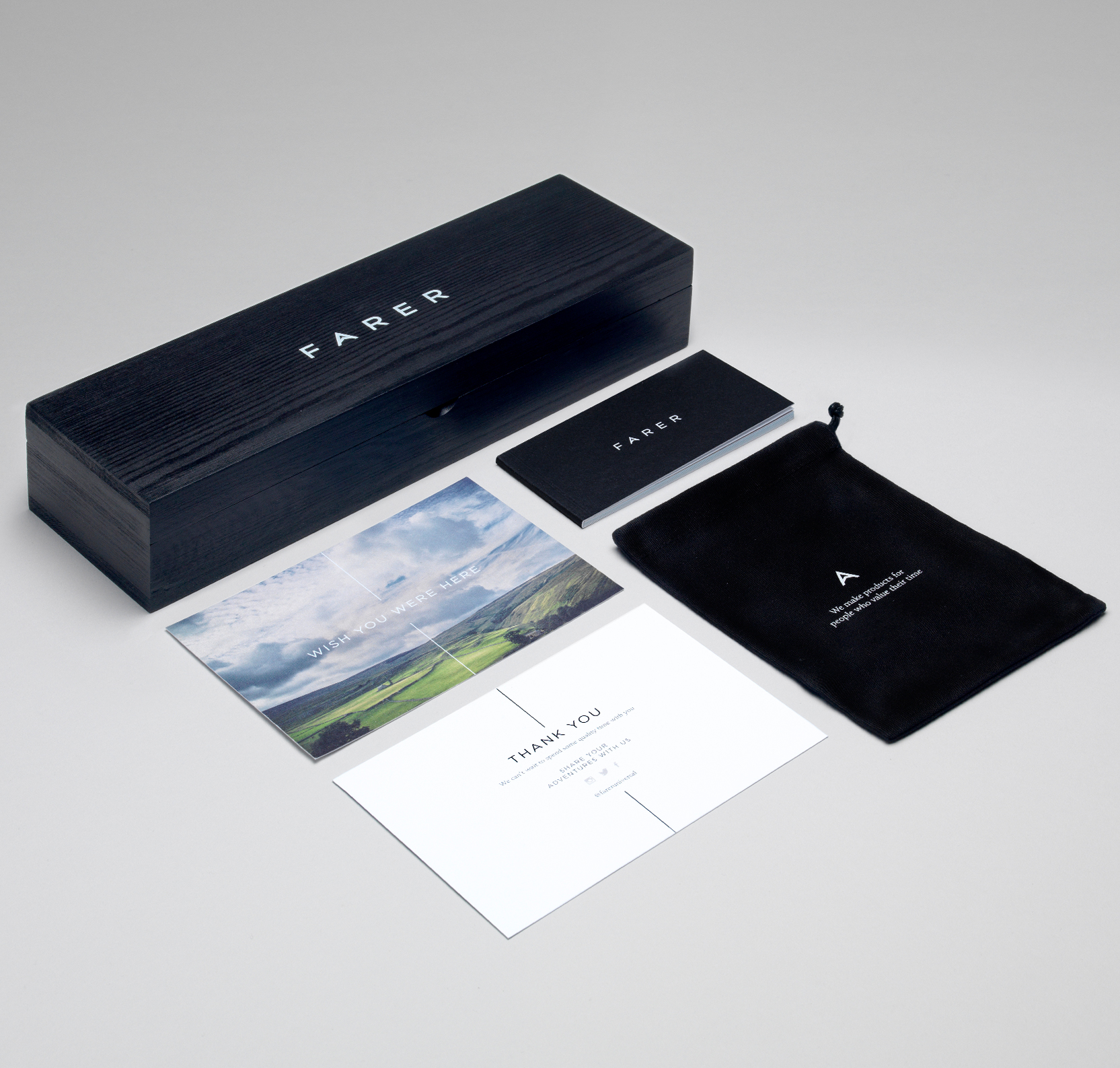
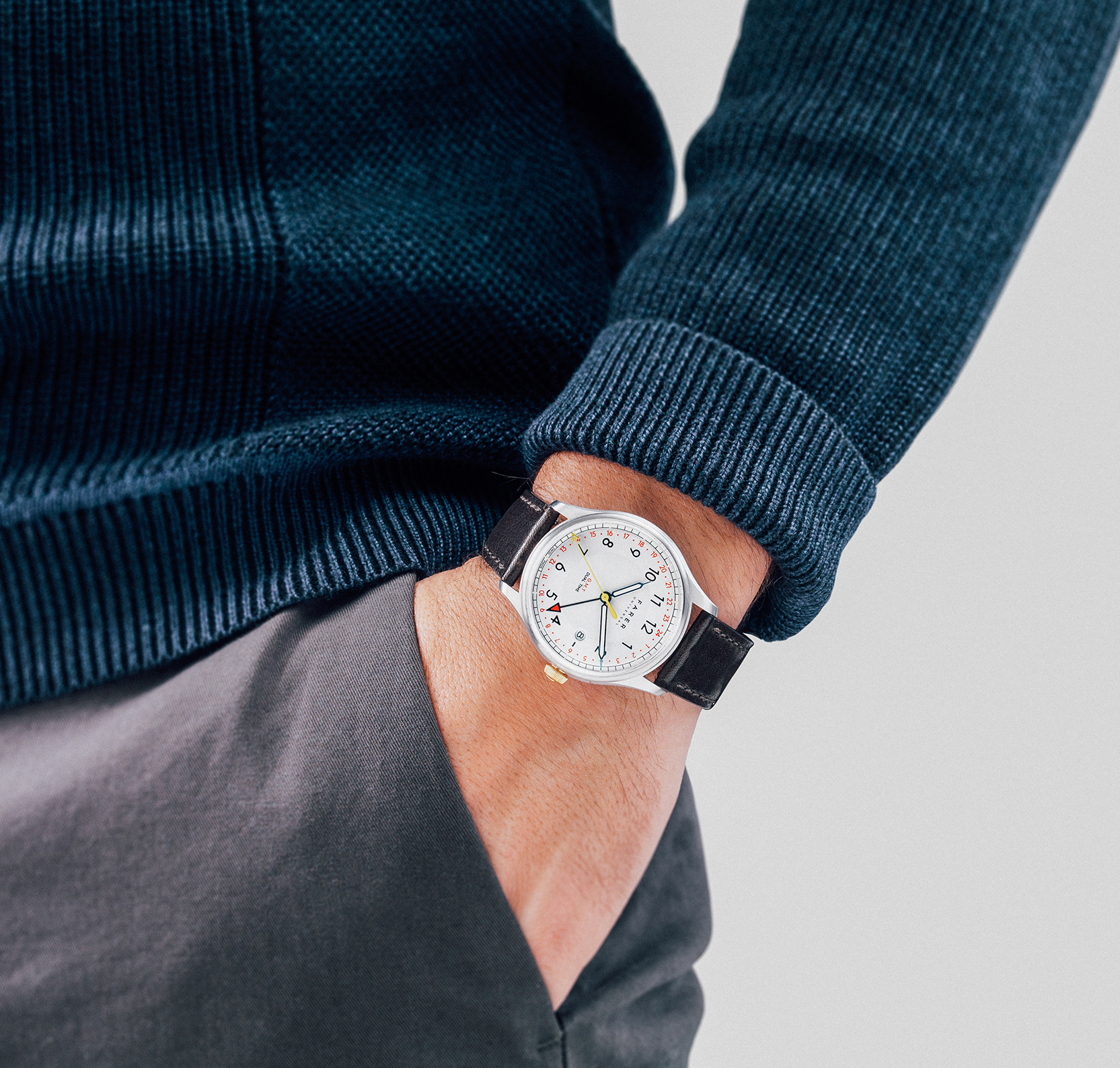
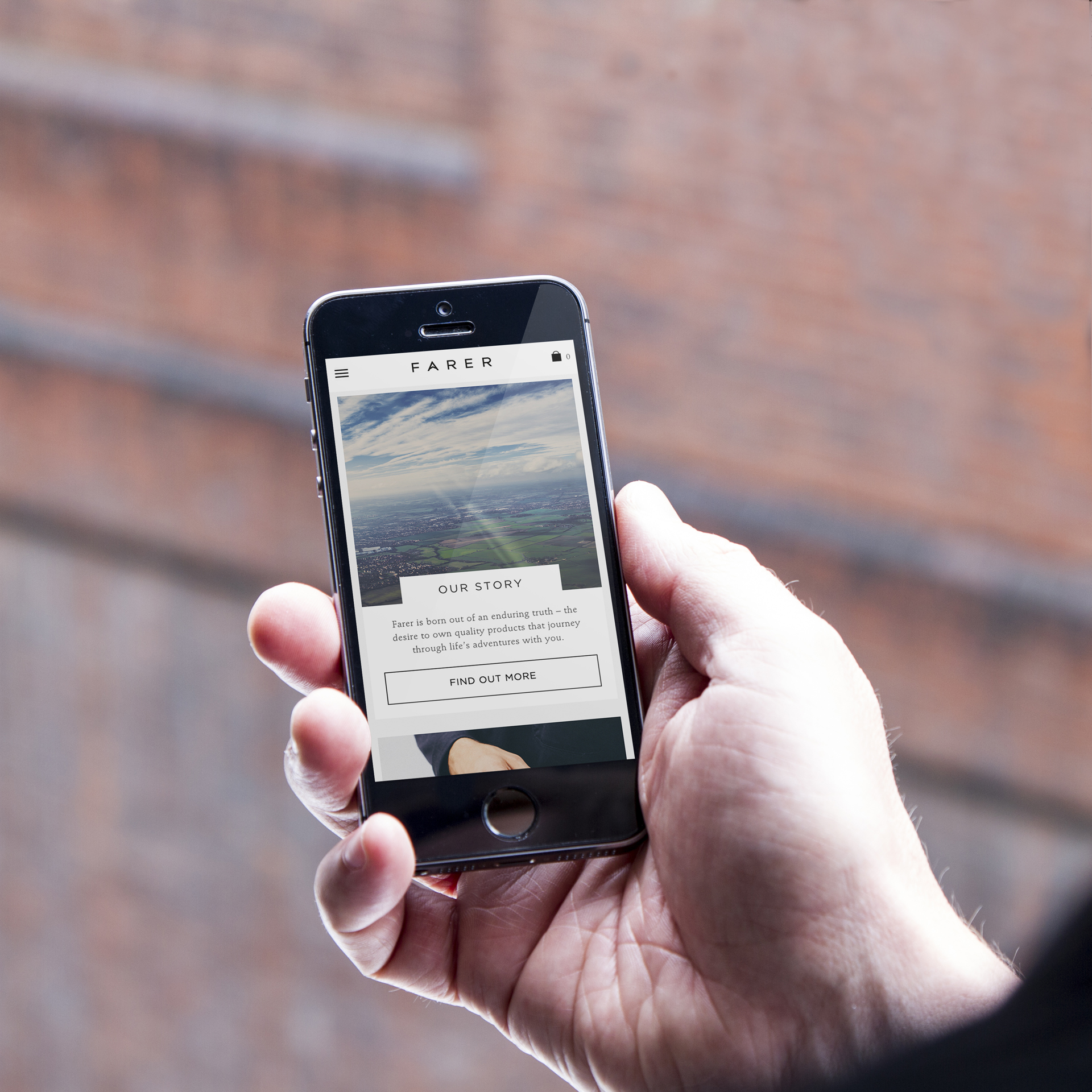
While at Shillington you likely became used to working under pressure, but now that you’re in the workplace is there a particular method you have for dealing with dry spells of inspiration or stress?
Elle: Inspiration is the whole process of designing, not just one spark. Therefore as long as you do research, sketch ideas, progress these to the computer, ask for advice, you will find inspiration along the way. Shillington is great at teaching this skill; the hard part is creating ideas fast. Stress is prevalent in our society as there is much pressure to work as quickly as possible, to ultimately increase profits. However, I find the more I get anxious about something, the worse work I produce. Therefore I lower my expectations—it is counterintuitive!
The less pressure you put on yourself the more you can think freely, intuitively and therefore achieve beautiful designs.
James: When I first started out, I was so excited by the prospect of working in the industry, there was no stress. Everything I worked on was awesome. As time goes on you do find yourself in your head shouting at the little things; the circle of death, computer responding slowly, project managers chasing work, swearing under your breath. It can get a bit overwhelming. My favourite thing to do is just go for a walk—take 20 minutes (if you can, do more). Just relax, take your mind off staring at pixels and refresh your mind to reality. When you get stuck on one idea it’s just best to move on. Stick your headphones on, go to a bookshop or a nice coffee shop—this really helps me open my mind for new ideas. Another of my favourite things is films, I love going to the cinema. It’s where I can really switch off, from the loud booming experience to the sweeping camera shots, to just looking at the details that the filmmakers have created.
Jeff: What usually works for me is to go outside and buy a tasty treat. Whatever brightens your mood—whether it be that chocolate bar or protein ball!
Is there any advice you’d give to a current student/recent graduate from Shillington?
Elle: For current students; focus on the skills and techniques being taught and good design will come naturally. For recent graduates, I had a great piece of advice from Laura Richardson from The Dots: don’t apply just anywhere, apply to places you really want to work for, as their style of work will guide and shape the type of designer you will become.
James: Be yourself. I really tried hard when graduating to bring my personality to the fore-front of my portfolio. I created a little box with some stickers, a newspaper and a cup of tea with a biscuit. Don’t be scared or shy about what people think, especially in class. Be the extra in ordinary, do simple things. Get yourself a website, a professional email address, really show you care about creativity and professionalism. And once you get that job, approach everything with enthusiasm and be open to anything. It can be a scary place, but if you listen, learn and develop, you’ll have the best time wherever you end up.
Jeff: Don’t ever stop asking lots of questions. And work smart.
If you want to hear more from the Otherway Designers, read the full interview in Shillington Post 04—The Process Issue.
Did reading about life at Otherway make you curious about embarking on a career in graphic design? Find out more -> www.shillingtoneducation.com
Photography: Simon Bray
Want to win some amazing prizes and stay in the loop with all things Shillington? Sign up to our newsletter to automatically go in the draw.

